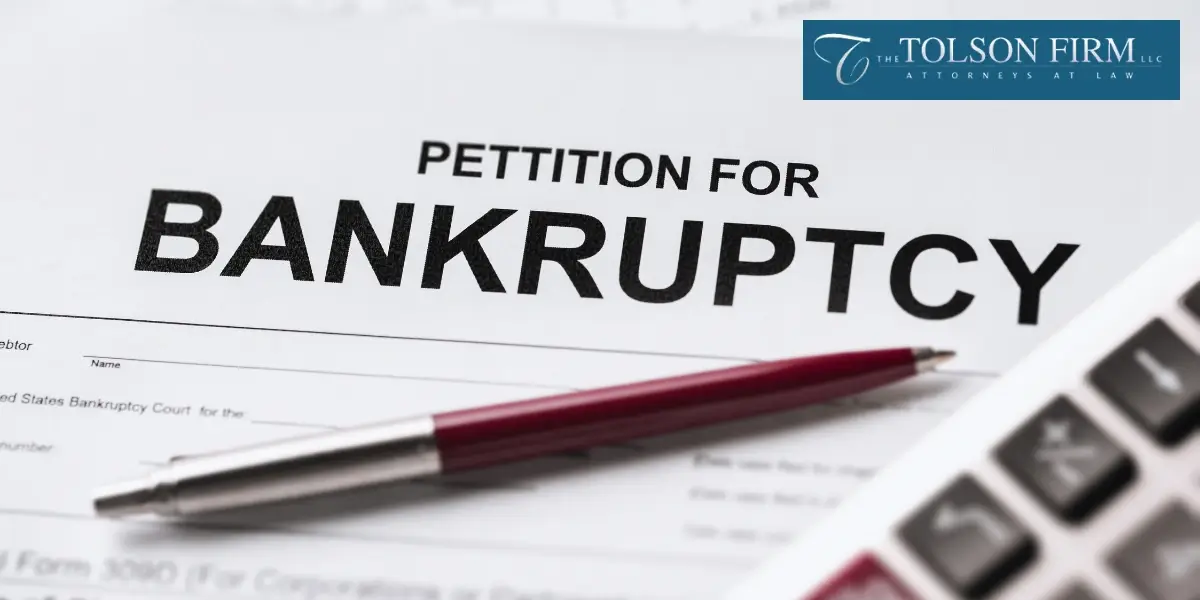|
|
Last
Modified on
Aug 07, 2025
Filing for bankruptcy is a huge decision and can come with a lot of intense emotions. For most people, it can seem like the end of the world. Understanding what happens when you file for bankruptcy in Florida is essential before starting this process. Bankruptcy can actually be a step forward in taking back control of your finances and supporting your future self.
Hire a Bankruptcy Lawyer
It’s common for those struggling with finances to avoid facing it entirely, often due to shame. New Smyrna Beach residents and the surrounding areas can seek legal advice from a New Smyrna Beach bankruptcy lawyer to navigate the complexities of state law.
The Preston Law Firm has served Florida clients struggling with their finances since 1986. We approach every new client without judgment. Our attorneys are here to provide you with transparent legal guidance based on the details of your finances.

Types of Filing for Bankruptcy: Chapter 7
In Florida, the average debt amount for residents was $28,000 in 2024. Having debt can feel embarrassing, and it’s often easier for people to avoid thinking or dealing with it. But doing so can make the interest pile up, as well as affect your credit if you struggle to meet your loan payments.
One of the common types of bankruptcy is called Chapter 7, or liquidation. This option is favorable to many who need to file for bankruptcy due to:
- The speedy process. You usually get your debts erased within a few months.
- Not requiring a repayment plan for your debts
- Being able to keep your home, as most Chapter 7 cases don’t require it to be sold to pay off your debts. However, some of your assets may need to be sold to repay creditors.
While this option sounds appealing to most considering bankruptcy, Chapter 7 is only available to those whose income is below Florida’s median.
After filing and attending mandatory meetings, the court then sends a notice of discharge to creditors. This is also called an automatic stay. This means they must stop trying to collect your debts. Then, in a few months, you’re debt-free.
Types of Filing for Bankruptcy: Chapter 13
If you can’t file for Chapter 7 due to being over the income limit, you may need to file for Chapter 13, also called reorganization. The court will look at your disposable income, which is the money left after paying necessary expenses, to decide how much you must pay towards your debts each month.
If you have more disposable income, your monthly payments will be higher. The plan may allow paying less than full amounts on some debts. It’s important to:
- Keep up with the monthly payments in order to successfully complete the repayment plan
- Avoid getting any new debts during the repayment period
- Hire a bankruptcy lawyer, as they can help explain what applies to your unique financial situation
The Benefits of Having a Bankruptcy Lawyer on Your Side
One of the biggest reliefs is that your lawyer can speak to creditors on your behalf, so you won’t have to deal with constant calls and letters. While you might think hiring a lawyer is too expensive, they often help you save money by negotiating better payment plans for Chapter 13 clients and getting more debts forgiven.
Most importantly, a lawyer can help you avoid costly mistakes and delays in the process. Their experience helps your bankruptcy case go smoothly.
What Filing for Bankruptcy Cannot Fix
While bankruptcy affects your credit and can have other adverse effects in the present, being debt-free can help you seek a better financial future. However, bankruptcy cannot:
- Erase child support
- Erase alimony
- Erase most student loans
- Erase any debts taken on after filing bankruptcy
Bankruptcy can affect your credit report for up to ten years. This can make it difficult to qualify for loans, credit cards, or renting.
Despite this, the process of bankruptcy can actually create a better financial future for you and your loved ones. It can be scary to research bankruptcy and see if it’s right for you. However, after filing and completing the process, many people feel a huge weight lifted.
You no longer have to worry about meeting high minimum payments that only pay off interest. You can start using your income to build generational wealth for you and your loved ones. Our team is here to help you navigate the process and help get you out of debt, making sure your rights are protected every step of the way.

FAQs
Q: Are There Limits to the Amount of Debt I Can Have Under Chapter 13?
A: Chapter 13 bankruptcy does place limits on the amount of debt you can have. Debts such as credit cards or medical bills have to be less than $465,275, as of 2025. Debts such as mortgages or car loans must be less than $1,395,875. These limits can change over time to account for inflation, so it’s important to stay up to date to be informed.
Q: What Are the Benefits of Filing for Bankruptcy?
A: In the short term, it stops creditors from contacting you and eliminates many debts or allows for easier repayment plans. It can also prevent foreclosure or repossession, giving you time to catch up on payments. The long-term benefits of bankruptcy can be a fresh start to your finances, including rebuilding your credit.
Q: What Are the Florida Income Requirements for Filing Chapter 7?
A: As long as you are below the median income, you can file for Chapter 7 bankruptcy. In 2024, the median income for Floridians was $62,973 for one person, $77,639 for two people, $89,908 for three people, and $104,069 for four people. In New Smyrna Beach, the average household income for one person was $49,265 as of 2023.
Q: How Long Is the Repayment Plan for Florida Chapter 13?
A: Even though there is no income limit for Chapter 13, your income affects your repayment plan’s length. If your monthly income is higher than the median income in Florida for your household size, your repayment plan will usually last five years. If your income is lower, the plan may last three years.
Contact Our Team Today to Learn How We Can Help You
While filing for bankruptcy can add to the pile of financial stress you may currently be facing, it can help you work towards a clean slate.
The easiest way to discover what options may be available to you is by contacting our office today. Let us help guide you through this difficult time so you can protect your future finances.






